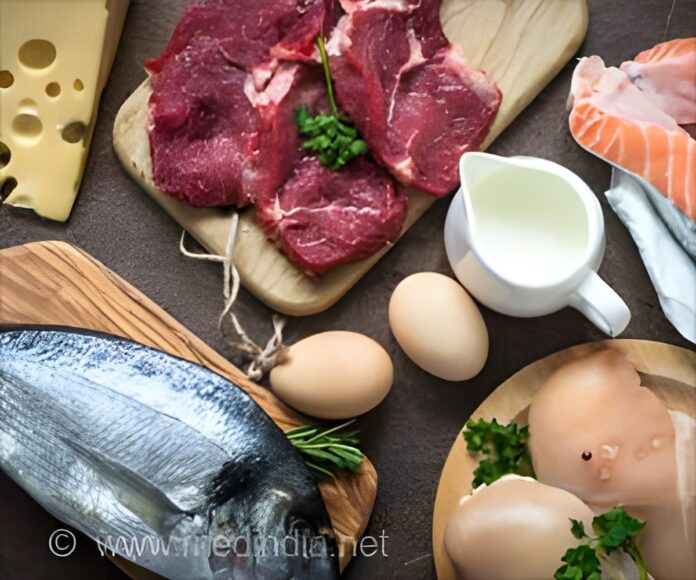Want to boost your child’s growth? Go non-vegetarian! Animal foods like meat, eggs, milk, and fish are essential for healthy development.
Non-vegetarians, rejoice! Animal foods like meat, eggs, milk, and fish can help fight stunting and boost your child’s growth and development.
A recent study conducted by CABI’s regional centre for Africa in Nairobi, Kenya, and the University of Bonn has shown that the consumption of milk products, eggs, and fish positively impacts childhood development in Africa.
Advertisement
Can Non-Vegetarian Foods Keep Malnutrition Away?
The researchers used representative data from five African countries with over 32,000 child observations. If the children had a diet containing animal products, they suffered less from malnutrition and related developmental deficiencies.
The findings of the study are published in the journal PNAS (1✔ ✔Trusted Source
Animal-sourced foods improve child nutrition in Africa
Go to source).
Advertisement
Stunting in Children: A Global Challenge to Overcome
Almost 150 million children under the age of five around the world suffer from serious growth and developmental disorders. This is also described as “stunting” in scientific circles and is caused by an insufficient supply of essential nutrients. Stunting not only causes children to have a shorter stature but is also related to impaired mental development and increased child mortality rates.
Advertisement
Vital Foods for Healthy Child Development
Studies have shown that the consumption of meat, milk products, eggs, and fish can reduce the risk of these developmental deficits. “However, no reliable scientific evidence of these effects had been produced up to now in Africa,” explains Dr. Makaiko Khonje from the CABI’s regional centre for Africa in Nairobi, Kenya.
This is now no longer the case after the completion of this latest study in which Khonje and Prof. Dr. Matin Qaim from the Center for Development Research (ZEF) at the University of Bonn evaluated data from five African countries. The data was sourced from representative surveys carried out in Ethiopia, Malawi, Nigeria, Tanzania and Uganda. It covered more than 32,000 observations of children aged up to five years old. Many of the boys and girls were examined multiple times over the years.
Animal Products Significantly Reduce the Risk of Stunting
The results speak for themselves: If the girl or boy consumed animal products even occasionally, the risk of stunting fell by almost seven percentage points. The consumption of eggs had the largest effect, followed by milk products and fish. In the case of meat, the developmental effects were positive in some countries but not in others. The researchers filtered out the influence of other factors such as family income or parental education in their statistical analysis.
Plant-Based Foods for Healthy Growth and Development
The study also showed that fruits, vegetables and pulses were good for growth and development. “However, the positive effect of a purely plant-based diet was lower than if the child also consumed animal products,” says Khonje. “Especially in rural areas, a sufficient amount of nutritious plant-based food is often not available throughout the year. Our results indicate that access to animal-sourced foods should be improved, especially for poorer families, in order to combat malnutrition.”
The results cannot be transferred to richer countries.
Livestock farming is a driver of global warming. It produces significantly more greenhouse gases than the cultivation of cereals, fruit or vegetables. “It will only be possible to achieve our climate targets if we significantly reduce the consumption of animal products worldwide,” emphasizes Matin Qaim, who is also a member of the transdisciplinary research area (TRA) “Sustainable Futures” and in the PhenoRob Cluster of Excellence.
Nevertheless, different approaches are required to achieve this goal: “People in Europe and North America consume four times more milk and meat on average than people in Africa. Therefore, it is certainly sensible in high-income countries to limit the consumption of animal-sourced food,” says Qaim. “Yet such a step would further exacerbate the issue of malnutrition in children in poorer populations on the African continent.” It is also not possible to transfer the results of the study to Germany: The consumption of animal products in Germany is significantly higher than is recommended for a healthy diet.
References:
- Animal-sourced foods improve child nutrition in Africa – (https://www.pnas.org/doi/10.1073/pnas.2319009121)
Source-Eurekalert


